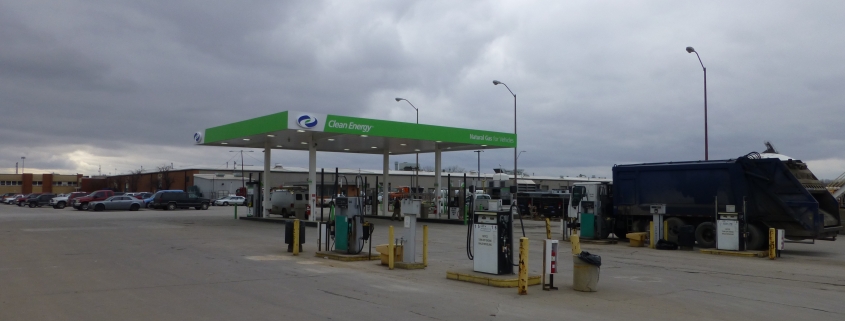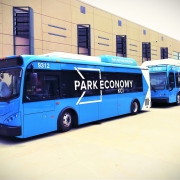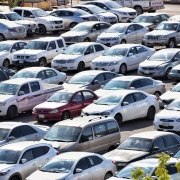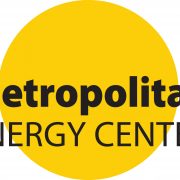Kansas City, Missouri fleet’s cookin’ with gas – natural gas
Kansas City, Missouri fleet’s cookin’ with gas – natural gas
By Jerry LaMartina
Metropolitan Energy Center
The City of Kansas City, Missouri’s fleet has been running on fumes of one kind or another for quite some time.
These days, though, an increasing portion of them come from compressed natural gas (CNG). The city has 275 CNG-fueled vehicles. That means about 12 percent of its roughly 2,400-vehicle fleet runs on CNG.
Sam Swearngin knows CNG. Swearngin’s worked with CNG since 1997.
Gasoline and diesel: You’re no CNG.
Swearngin is Kansas City’s fleet administrator. His latest CNG effort on the city’s behalf came in the form of 174 CNG vehicles, purchased with the help of a $4 million from a U.S. Department of Energy (DOE) Clean Cities grant awarded in December 2009, and $9 million supplied by the city. The grant money was part of a $15 million Clean Cities grant, which also benefited several other municipalities and companies in the Kansas City area and elsewhere that had implemented alternative-fuels projects. Kansas City-based Metropolitan Energy Center (MEC) administered the grant through a contract with the DOE. All the projects supported by the grant constitute MEC’s Midwest Region Alternative Fuels Project.
The city started putting the 174 CNG vehicles into service in March 2010 and put the last vehicle into service in February 2013. Some of the vehicles came CNG-ready from the factory, and then were given final modifications at a local dealership. Others arrived ready to hit the ground.
The new CNG vehicles – and all the others in the city’s fleet – will have access to a new fueling station, at 5300 Municipal Drive in Kansas City, Mo. The city expects the station to be operational by May, Swearngin says. It will be the city’s sixth CNG station.
The city contracted with Clean Energy Fuels Corp., based in Newport Beach, Calif., to build, install and maintain the station at its own expense. The station’s construction and installation cost just over $2 million. It’s expected to be operational by May, Swearngin says.
The city in turn will pay Clean Energy Fuels to offset the station’s construction and maintenance costs through a fuel surcharge of $1 per gas gallon equivalent (gge). The city entered its contract with Clean Energy Fuels because the cost to build and maintain the station was more than the city wanted to spend, he says.
But, the city also wants to save money in the longer term. Who doesn’t?
“In the last two fiscal years, the city saved $1 million in fuel costs by using CNG instead of diesel,” Swearngin says.
That savings came mainly from the city’s use of CNG to power its heavy-duty trucks, and the buses used at Kansas City International Airport. The city’s fleet, excluding the KCI buses, uses from 25,000 to 28,000 gge of CNG each month, roughly double the volume it used four years ago, Swearngin says. The KCI buses use an additional 33,000 gge a month.
In 2008, the city consolidated its fleet fueling, enabling it to better track how much money it’s saving by using alternative fuels, Swearngin says. The city wants to add three more CNG stations, but no money has been allocated from the most recent Clean Cities grant.
The city’s whole effort toward using cleaner, less-expensive fuel started with a CNG pilot program in 1997 with 12 CNG vehicles and a partnership with Missouri Gas and Energy to refuel at MGE’s stations. Many more CNG-powered vehicles have hit the ground since then, along with CNG fueling stations and electric charging stations.
And the city has taken leadership in helping other Kansas City-area fleets get their CNG legs.
“We facilitate other fleets in the Kansas City area going over to CNG,” Swearngin says. “Kansas City, Kansas Public Schools filled their buses up with us. Lee’s Summit School District did, too. We try to help other fleets until they get their own stations up.”
The reasons for putting all this time, energy and money into alternative fuels are clear, Swearngin says.
“First and foremost, we do it for air-quality reasons,” he says. “Kansas City’s got a low-level ozone problem like all other cities. Number two, if we’re smart about it, it really saves a lot of money in fuel costs, especially for the big trucks. And the third reason is risk management. It lowers our energy-security risk, because while we like to think we’re getting close to energy independence, we’re not. We’re dependent on imports, and that leads to price and supply volatility. We can avoid that because CNG is a domestic source of energy.”
And, all these efforts help to lower human beings’ carbon footprint, he says.
“We can say now that global warming is real and it’s being made worse by human activity on the planet.”
************
lamartina.jerry@gmail.com





